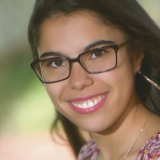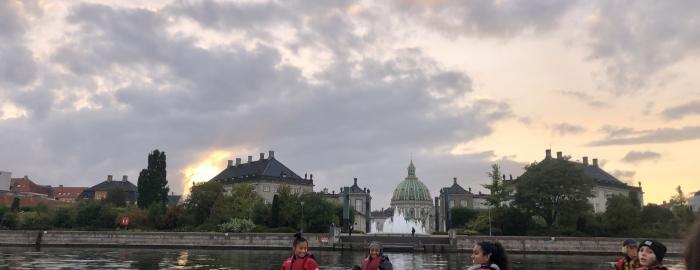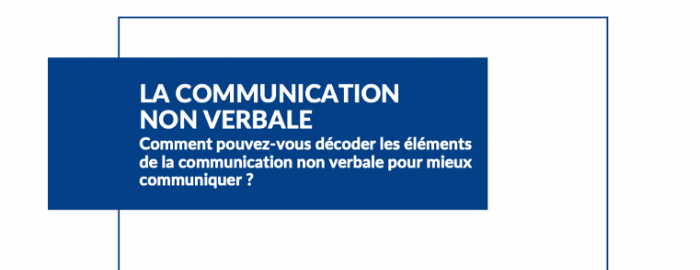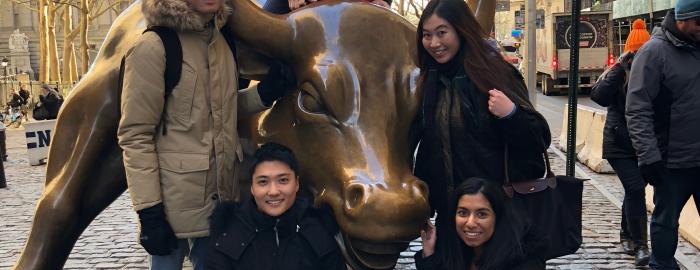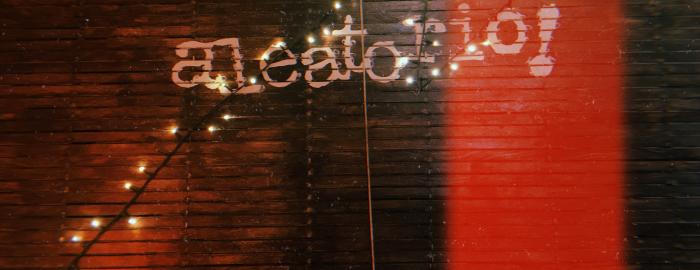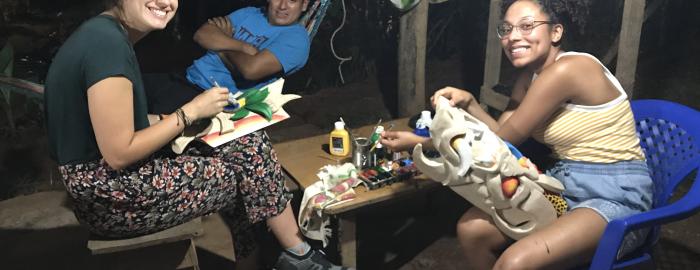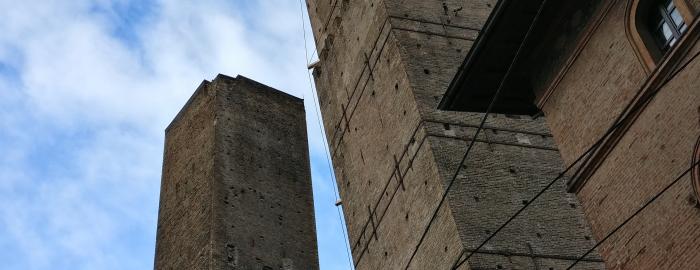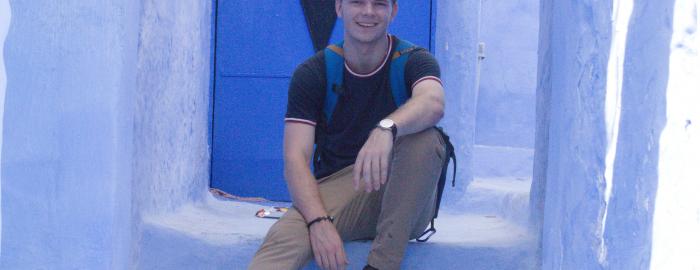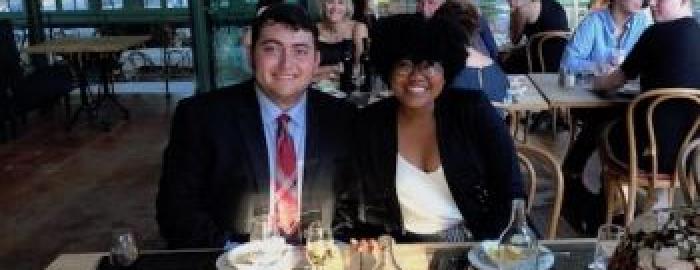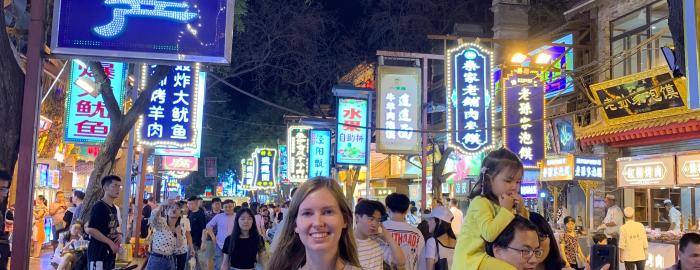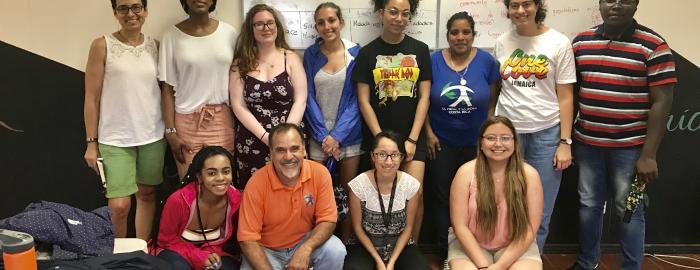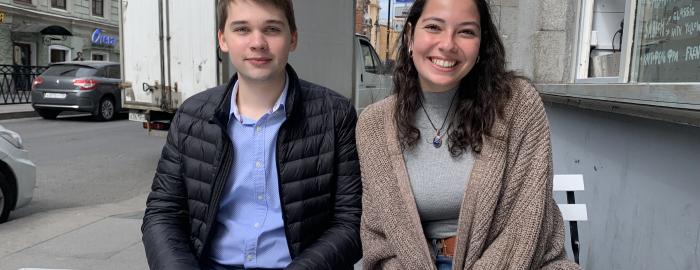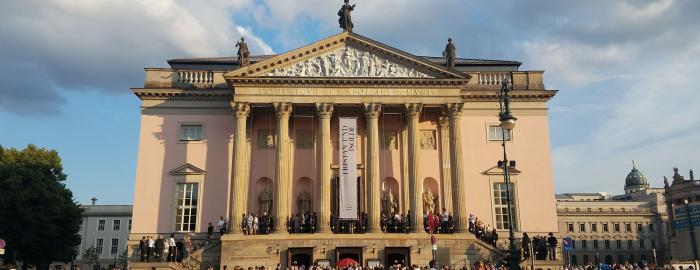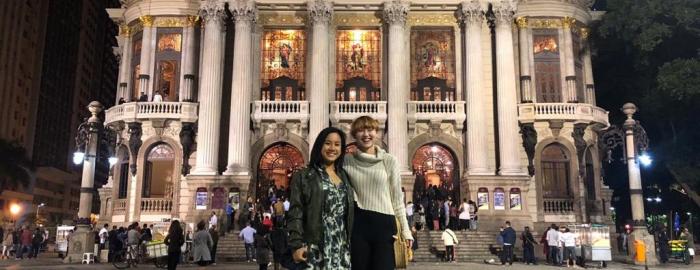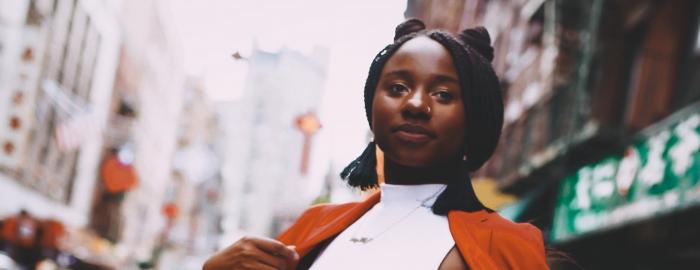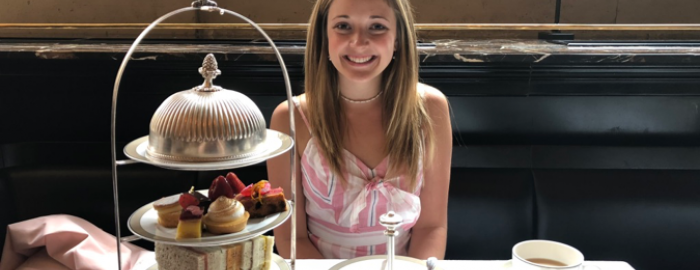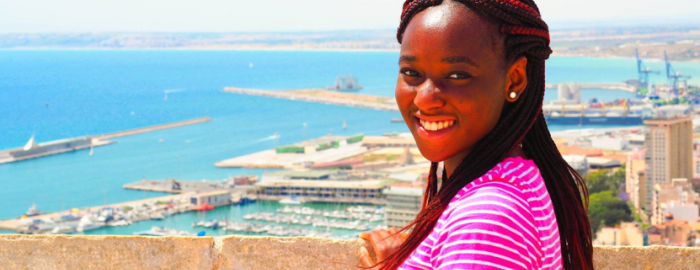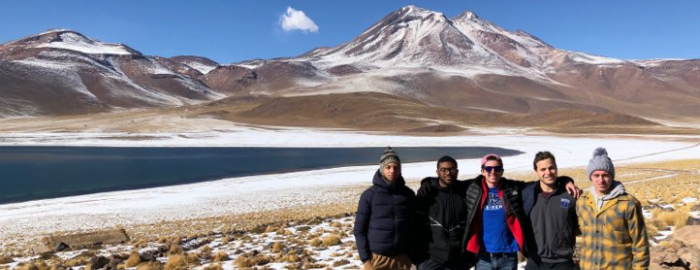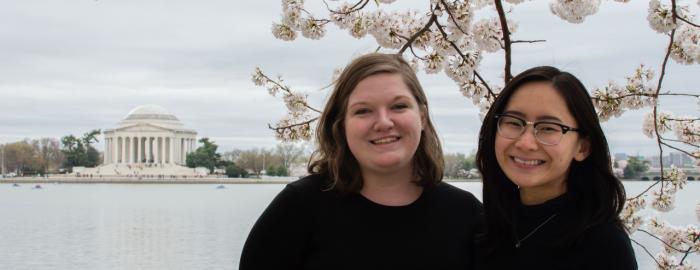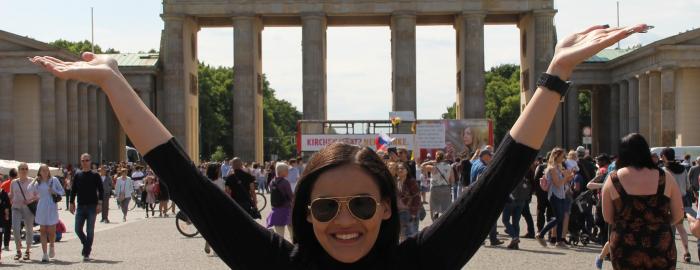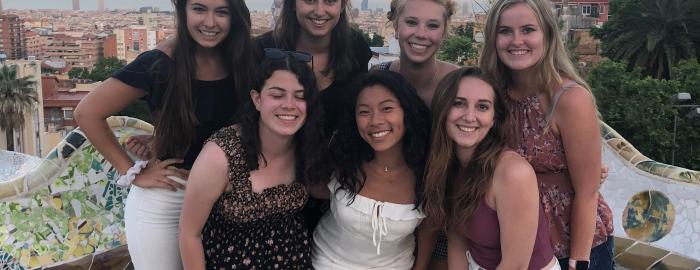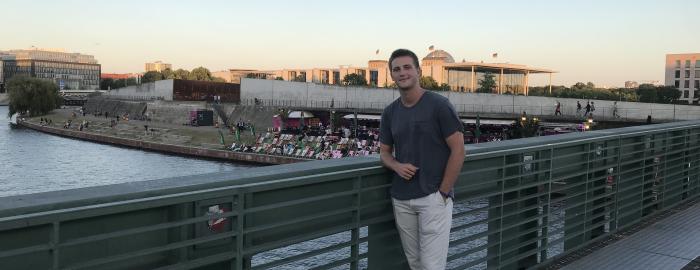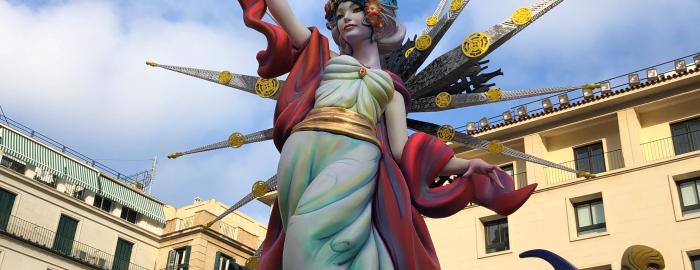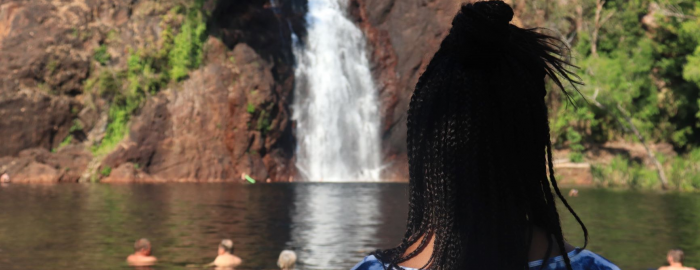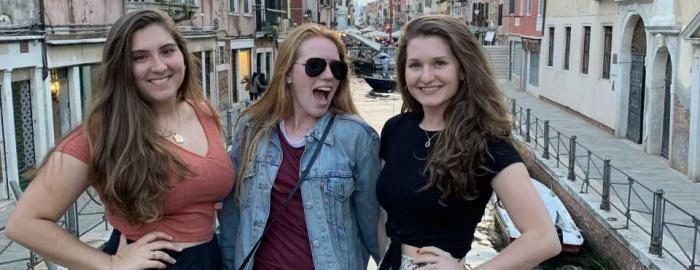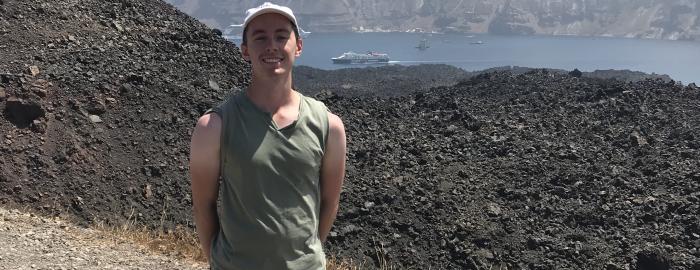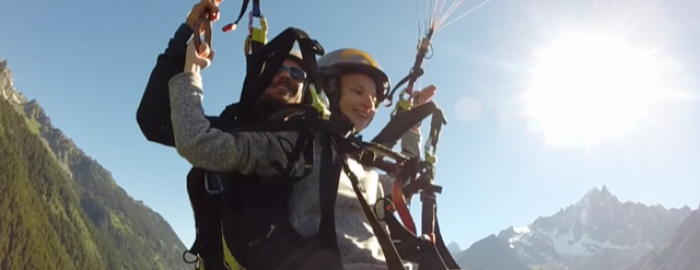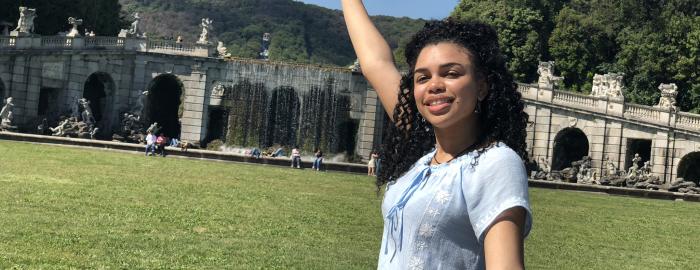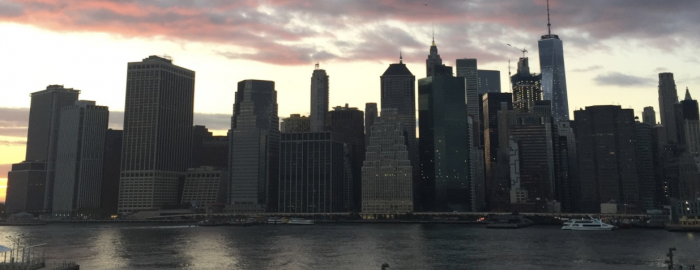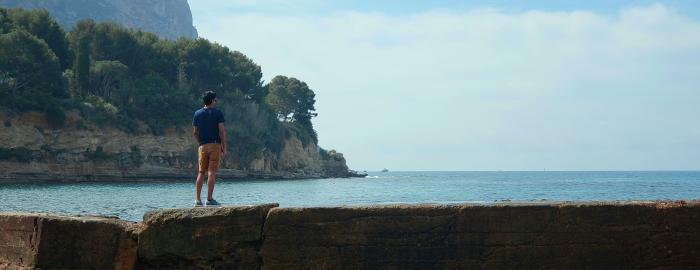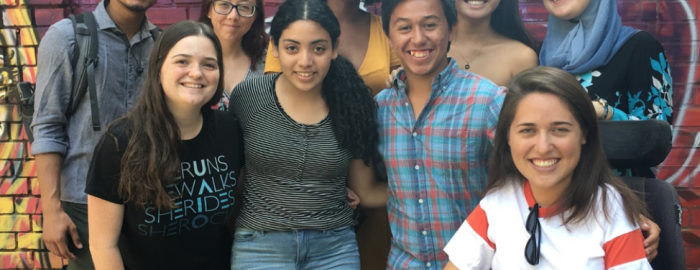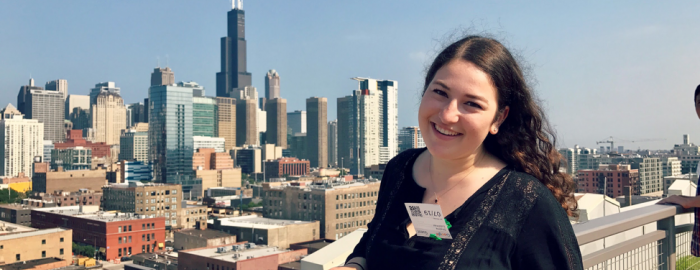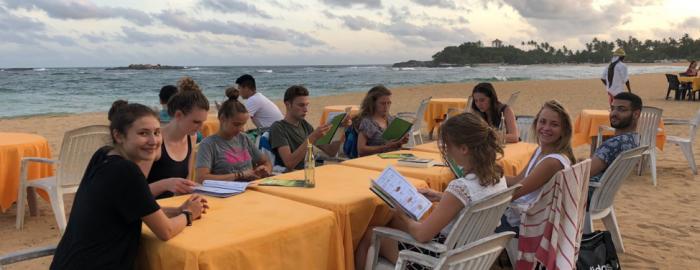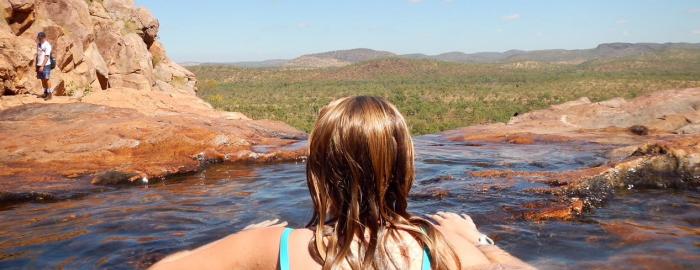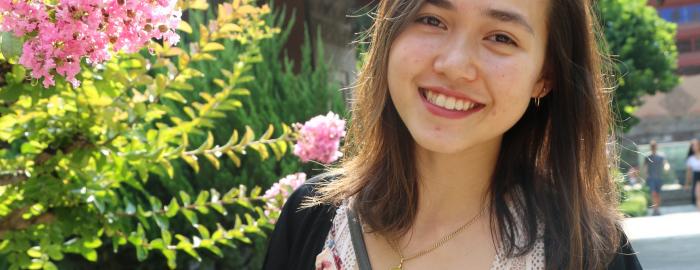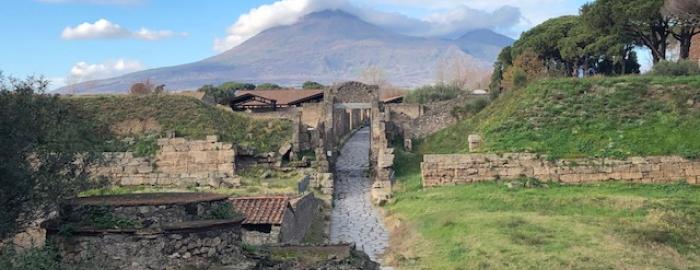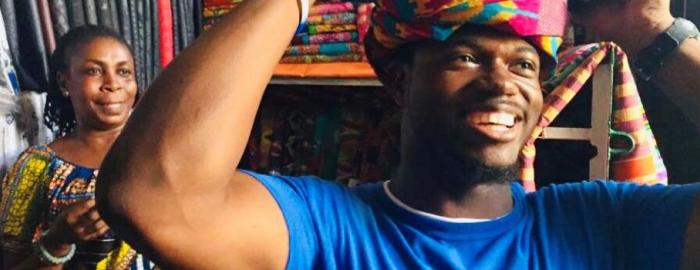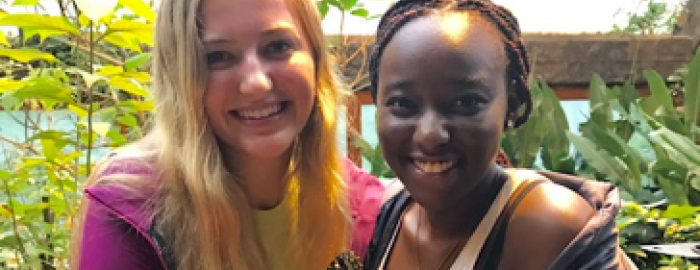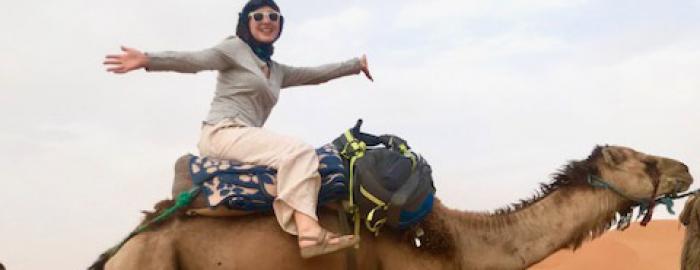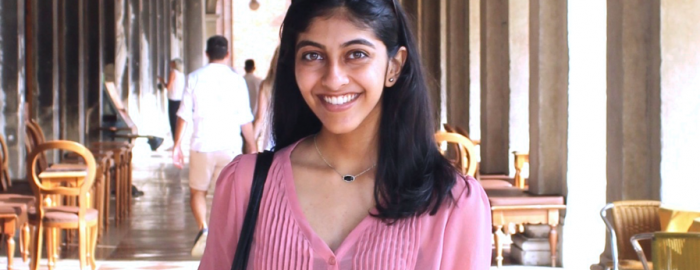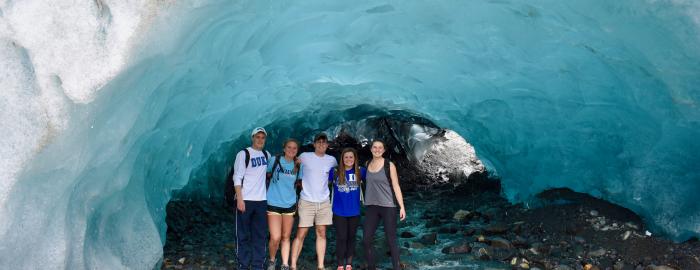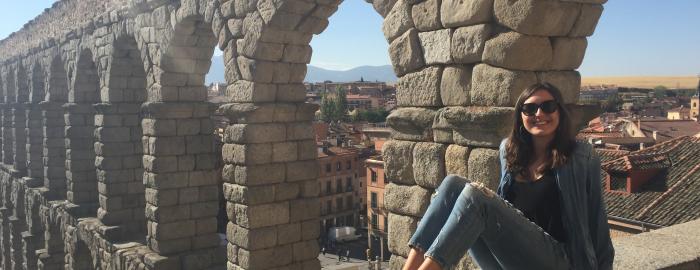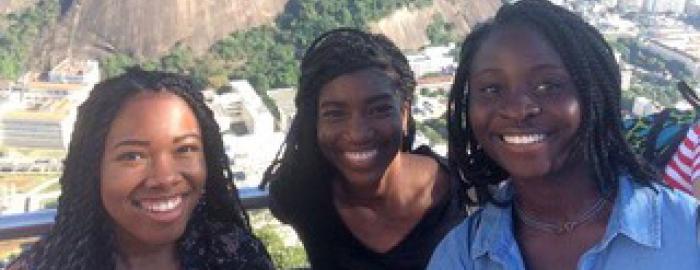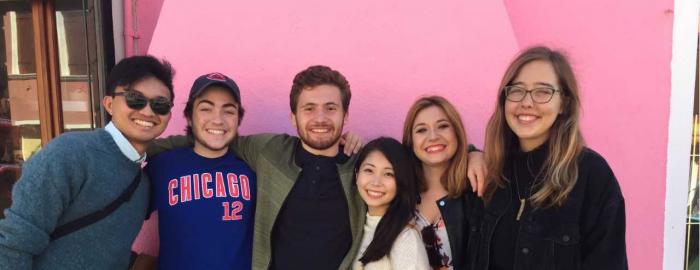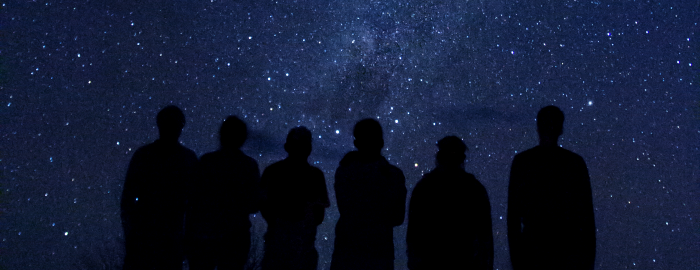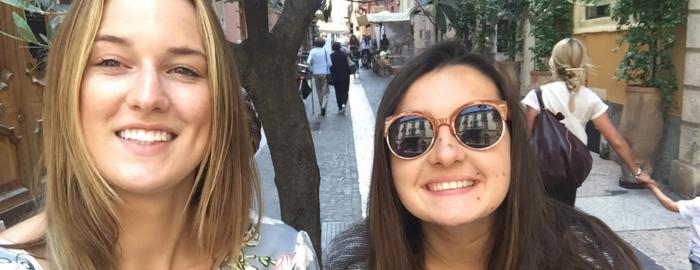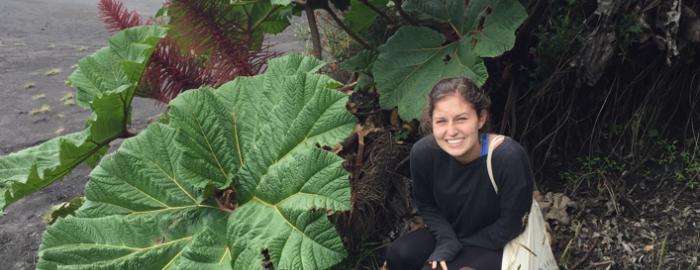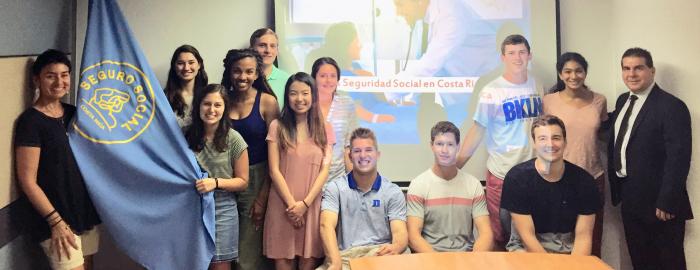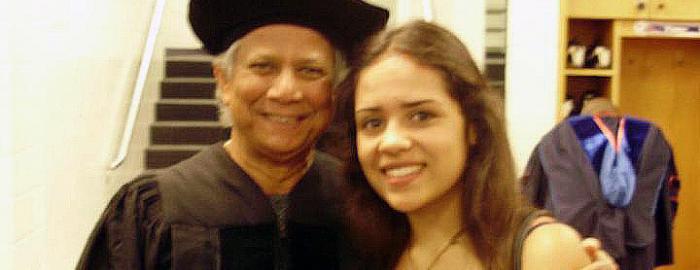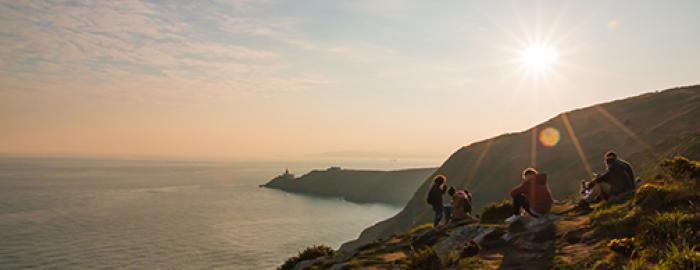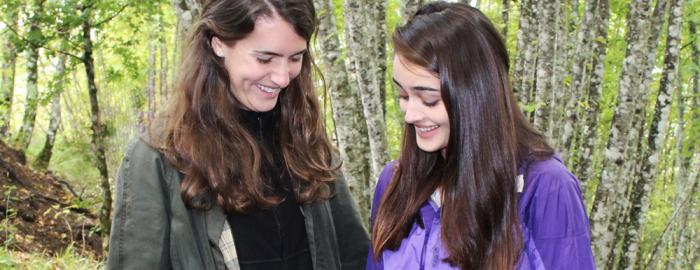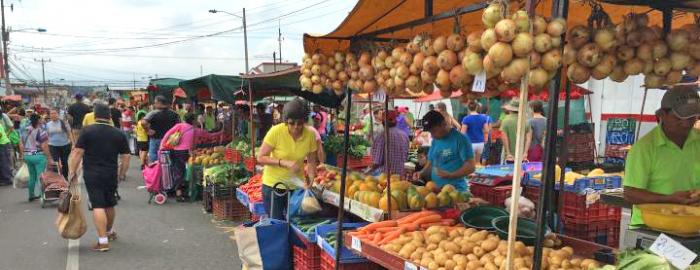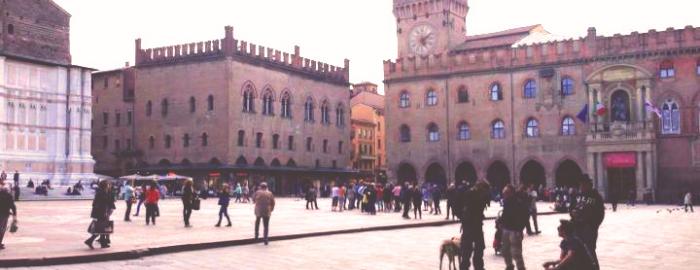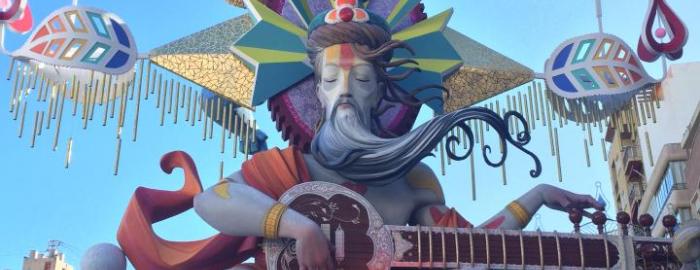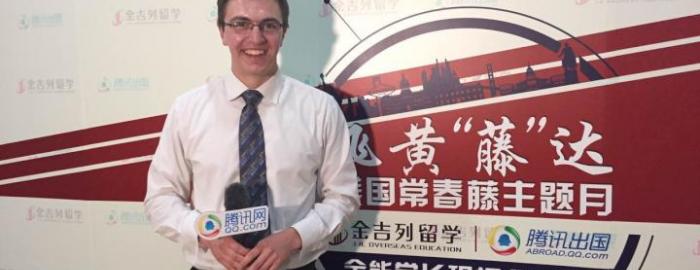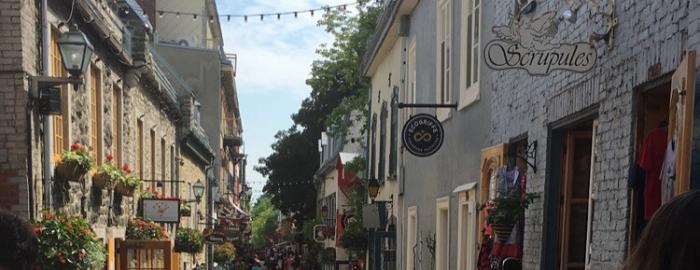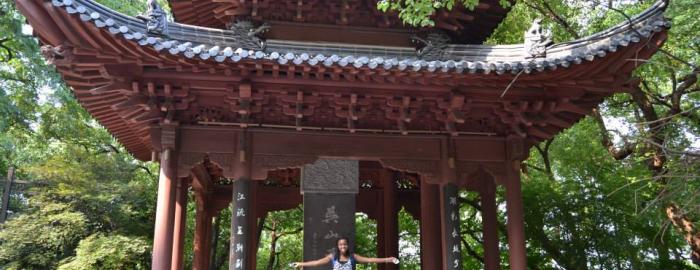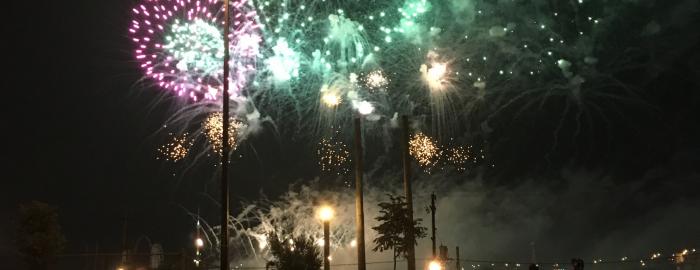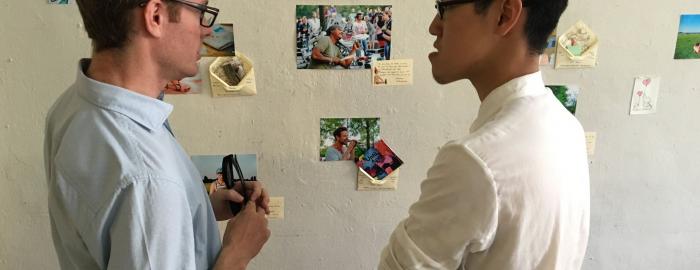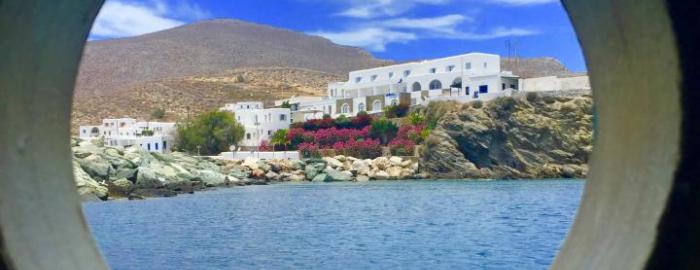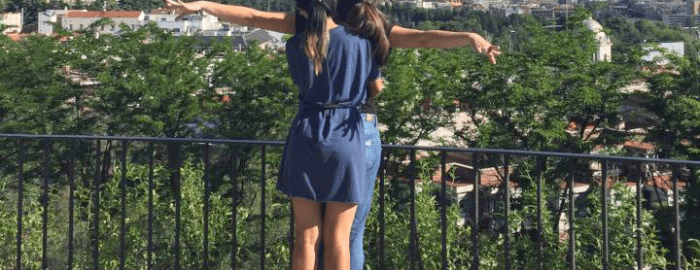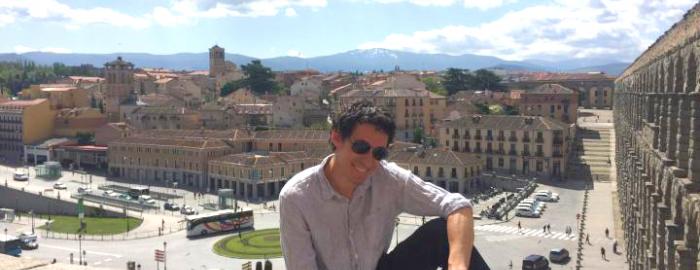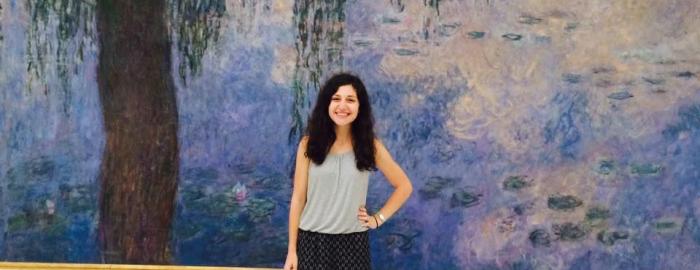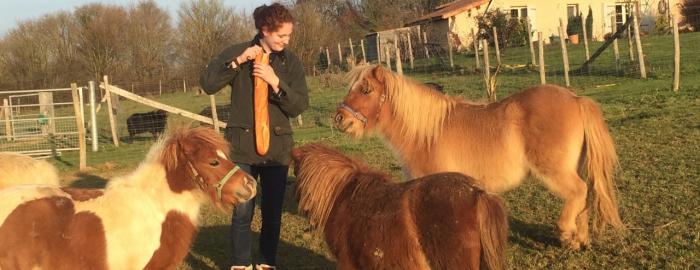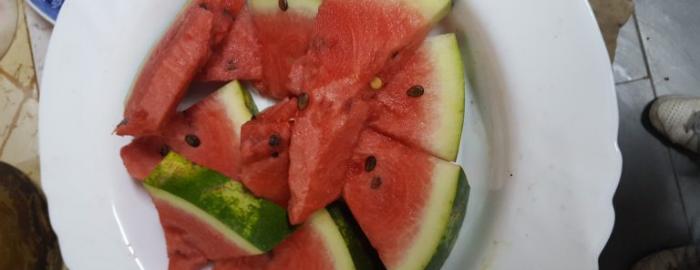Coming to Duke, Briana Kleiner didn't know what the future would hold, but she knew Duke held the promise of memorable experiences that would last a lifetime. Now in her senior year, Briana reflects back on the tailored path she ended up creating, the ups and downs of trying to find her way, the global opportunities she dedicated her heart and mind to pursuing, and the resulting confident individual she is proud to be today.
Lost in a Sea of Directions
During my first few semesters at Duke, I did not have a checklist or a clear path outlined. Granted, all Duke majors have checklists for you detailing major requirements and electives, but it also constantly changes in course availability and the introduction of new courses. Therefore, it was difficult to navigate with such uncertainty, but I was confident in my love for studying the ocean and fish—an extremely broad area of inquiry with many different avenues for exploration. In addition, I was intrigued by conversations surrounding complex and reflective questions that related to differences in cultural backgrounds. My interests were broad but flexible. However, what stood firm since the day I applied to Duke was my desire to take advantage of two unique opportunities: I wanted to travel and to study at the Duke University Marine Lab (DUML) in Beaufort, NC.
I knew I needed to narrow my scope, but there are so many opportunities to participate in at Duke. I applied to various programs on campus and heavily involved myself in extracurricular activities. It was challenging to evaluate which opportunities I should focus my energy on; I felt compelled to pursue every single one. Looking back, I should have sought help determining what would be the best for me. However, I felt like I needed to do it all on my own.
What I now realize is I was missing out on meaningful conversations. I was not taking advantage of the abundance of Duke faculty members who could help me develop myself professionally and mentally. So many of Duke’s faculty members offer opportunities that require students to search for them, as they are not easily found. These professors, who I have come realize are some of Duke’s greatest treasures, are the ones who challenged me the most in my Duke experience. One example of Duke’s faculty treasures is Professor Alexander Glass, Director of the Earth and Ocean Sciences Division in the Nicholas School of the Environment.

I had Professor Glass for BIO 157: Dynamic Oceans during my first semester at Duke. When he recommended that I enroll in his 4-week summer study abroad program, not only did he provide me with a potential direction for my academic path, he provided an opportunity to travel with him to the one place I waited nine years to visit: Australia. Traveling around Australia was not only intellectually stimulating but also memorable. I was able to feed wallabies, hug eucalyptus trees, and observe spiders as big as my face. I immersed myself in research of the evolution and ecological interactions of Acanthaster plancii, the Crown-of-Thorns starfish. A dream come true, but yet, I still felt a void.
After I returned from Australia, I endured my biggest failure at Duke. I failed one of Duke’s introductory chemistry courses, and with it, came a downward spiral in my mental health. One might compare it to a borderline identity crisis. My anxiety and depression reached unprecedented levels, higher than what I experienced in high school, causing me to fail tests and lose interest in what I used to love to do. I became increasingly reliant on other things and other people to make me happy and to define what I was passionate about—something that I have since learned we should never do to ourselves. What I needed to do was to re-examine myself.
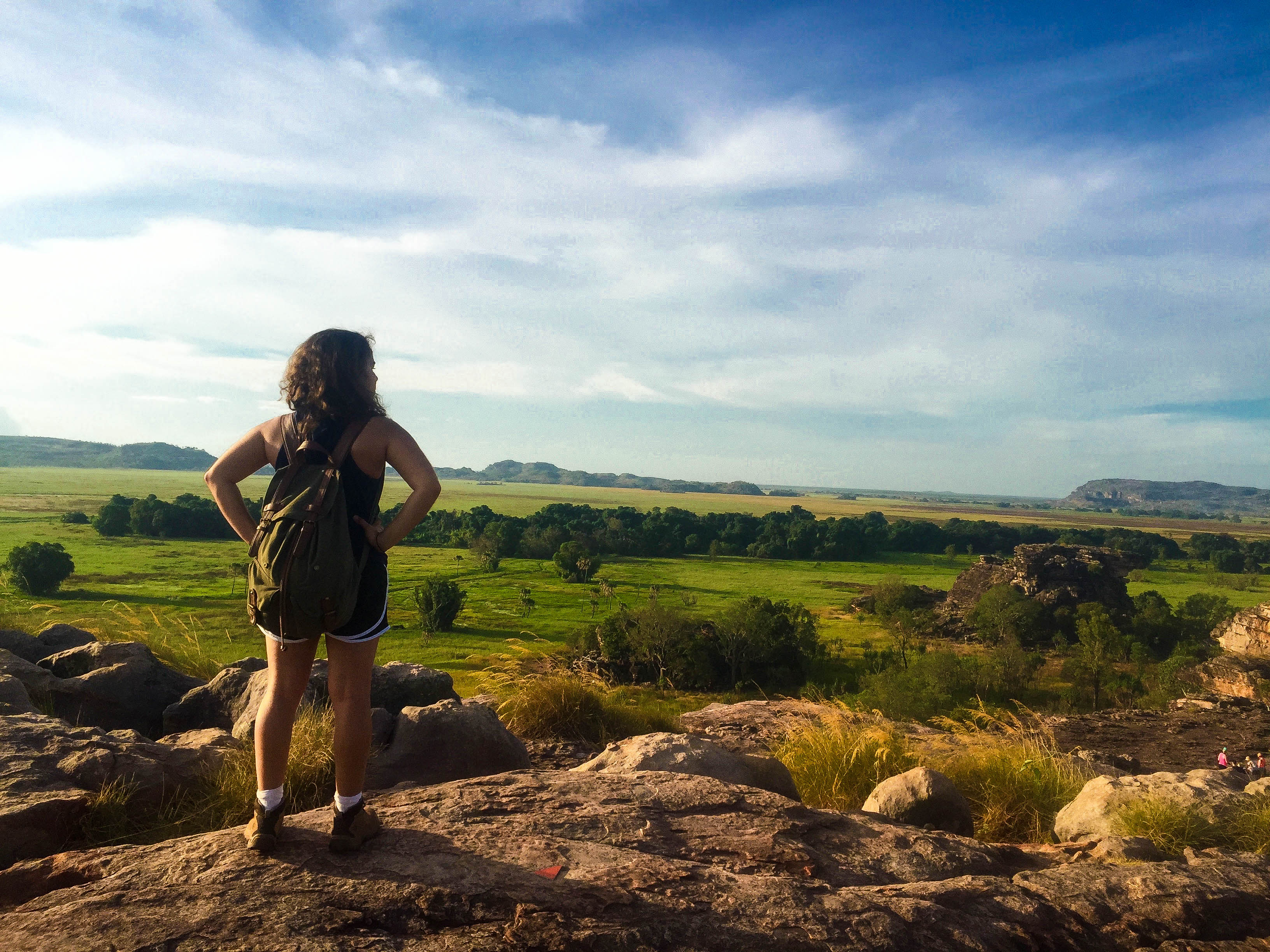
Finding My Way Through Immersion
Without an academic track and its guiding hand to hold, I felt lost. Maybe I was too ambitious, or maybe, I was just the right amount, but I did not want to meet face to face with unhappiness. And, as a result, I allowed my fear of failure to deter me from challenging myself. Nevertheless, I reminded myself of the goals I had before coming to Duke, to travel and to study at DUML. If I focused my efforts on these two goals, I believed I would have a better sense of direction and also a better sense of who I am. In an attempt to work toward improvements in my happiness, I enrolled in courses at DUML for the spring semester of my sophomore year.
While at DUML, I had the opportunity to take courses that included travel to Singapore and Mexico. I utilized these travel courses as a means of escape. An escape from Duke’s main campus, home to my failures and frustrations. But also an intellectual escape to a new trajectory in my academic path, one that recognized the importance of multidisciplinary and multi-mission goals and approaches in combating threats to our oceans. By challenging myself to explore another field of study relating to the environment, Environmental Science and Policy, my concentration in marine science shifted from strictly natural science to a more interdisciplinary approach.
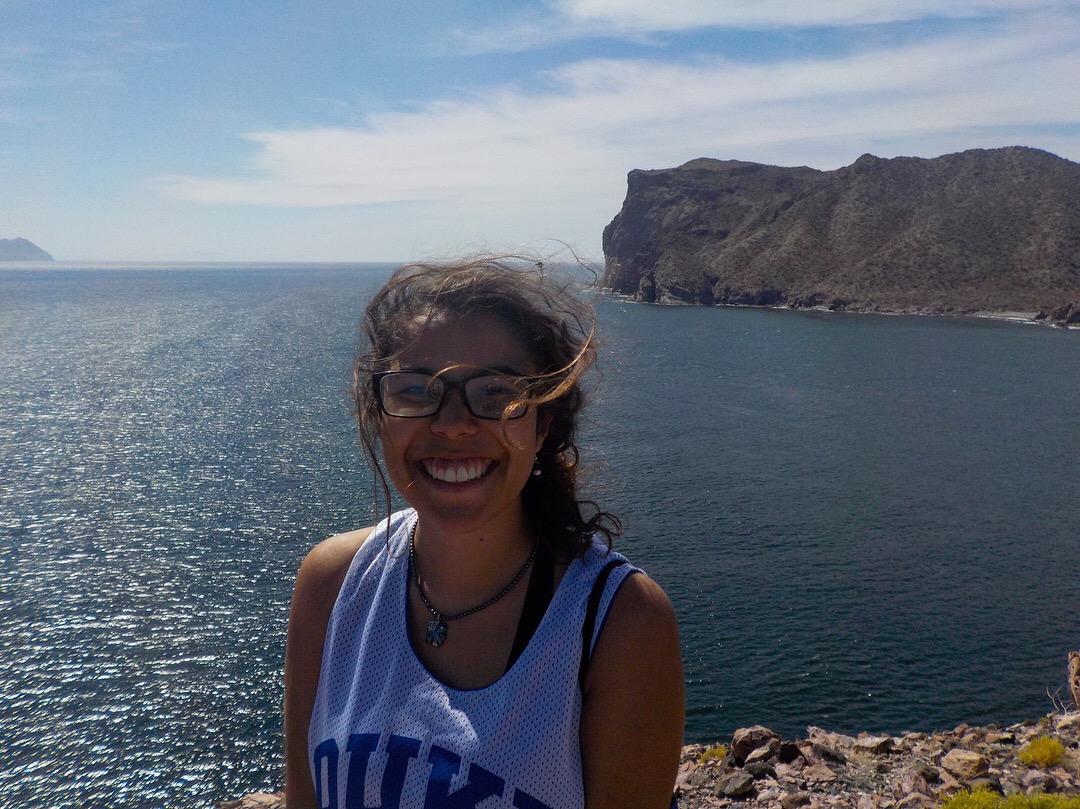
I felt myself and the course of my life change after I spent time in Mexico for a course titled Community-Based Conservation in the Gulf of California taught by DUML’s Associate Professor Xavier Basurto-Guillermo. In his course, I was able to interact with a culture entirely different from my own and deepen my empathy toward diverse perceptions regarding the ocean’s purpose. His course allowed me to challenge dichotomies and investigate contradictions in agendas in ocean conservation. It opened my eyes to the importance of studying the real world—what exists outside of the classroom. I felt drawn to a field that I never would have imagined setting foot in eight years ago. By the end of my sophomore year, I told myself I would return to Mexico and DUML, but I also needed to continue to grow into my own skin and, obviously, learn a bit more Spanish.
The best way I’d learned to grow into my own skin was to reduce the bombardment of internal criticism. Where I found I could do this most was abroad, in the countries and communities that I had the privilege of engaging with. I plunged myself into the pool of opportunities at Duke to find one like this for the upcoming summer. However, coming from a low-income household, I was limited in the number of travel opportunities I could participate in. I had to be strategic in my planning; I had to determine where and in what way I would experience the most growth while staying connected to my interests in the environment and conservation.
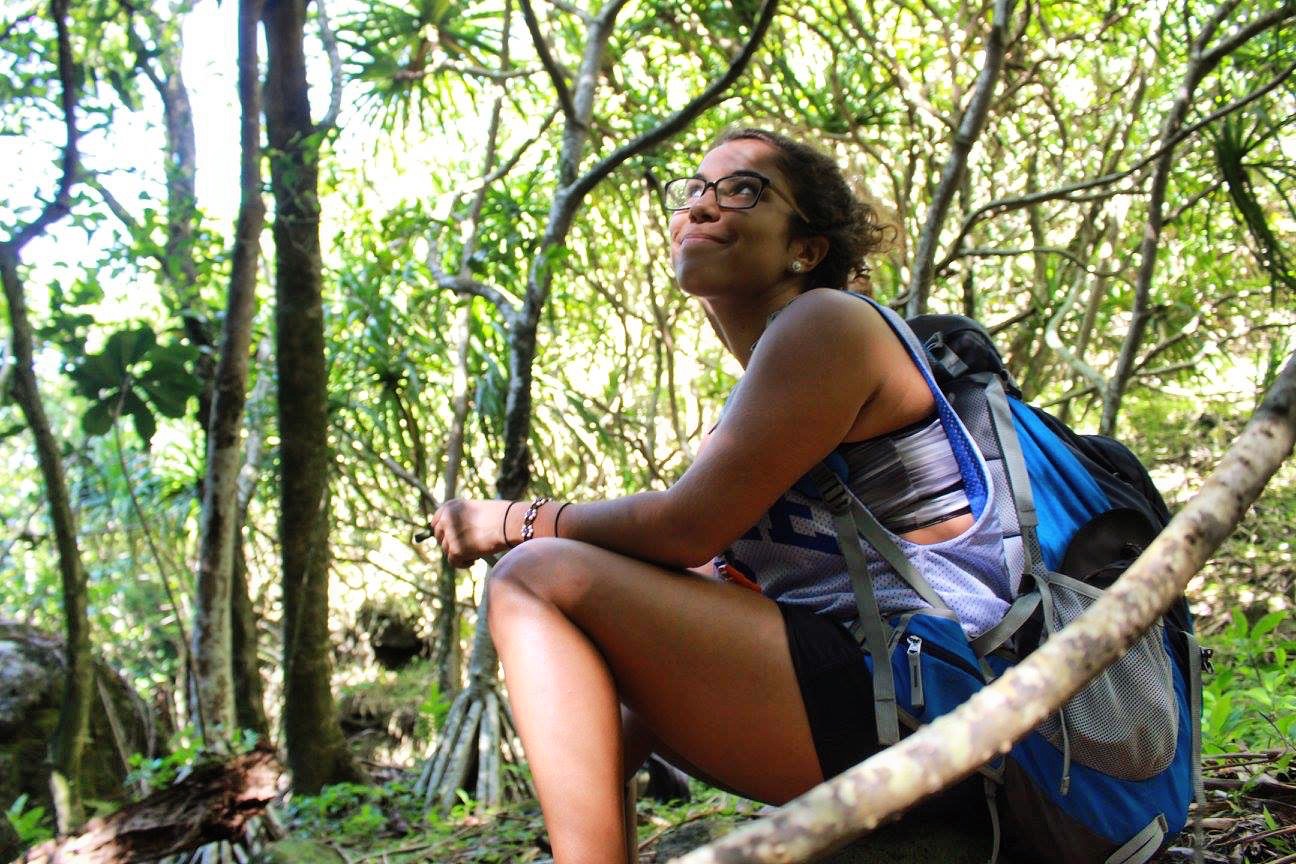
This narrowed my search to a program that is integral in Duke’s efforts to shape students to be the next generation of leaders in the global community—DukeEngage. The mission of DukeEngage is to empower students to address critical human needs through immersive service. The program I chose to apply for, and was extremely fortunate to be selected for, was DukeEngage Kaua’i. This program is focused on restoring ecological and cultural diversity and providing sustainably-grown food to local communities. During my participation in the program, I was able to not only provide meaningful assistance to the communities within the North Shore of Kaua’i, Hawai’i, but I was able to connect with its members, develop relationships, and make memories. Today, I share these memories and my commitment to the value of the DukeEngage program as a guiDE, where I serve as a program liaison, mentor students through their civic engagement development, create training resources, and speak publicly at outreach events while upholding DukeEngage values on campus.
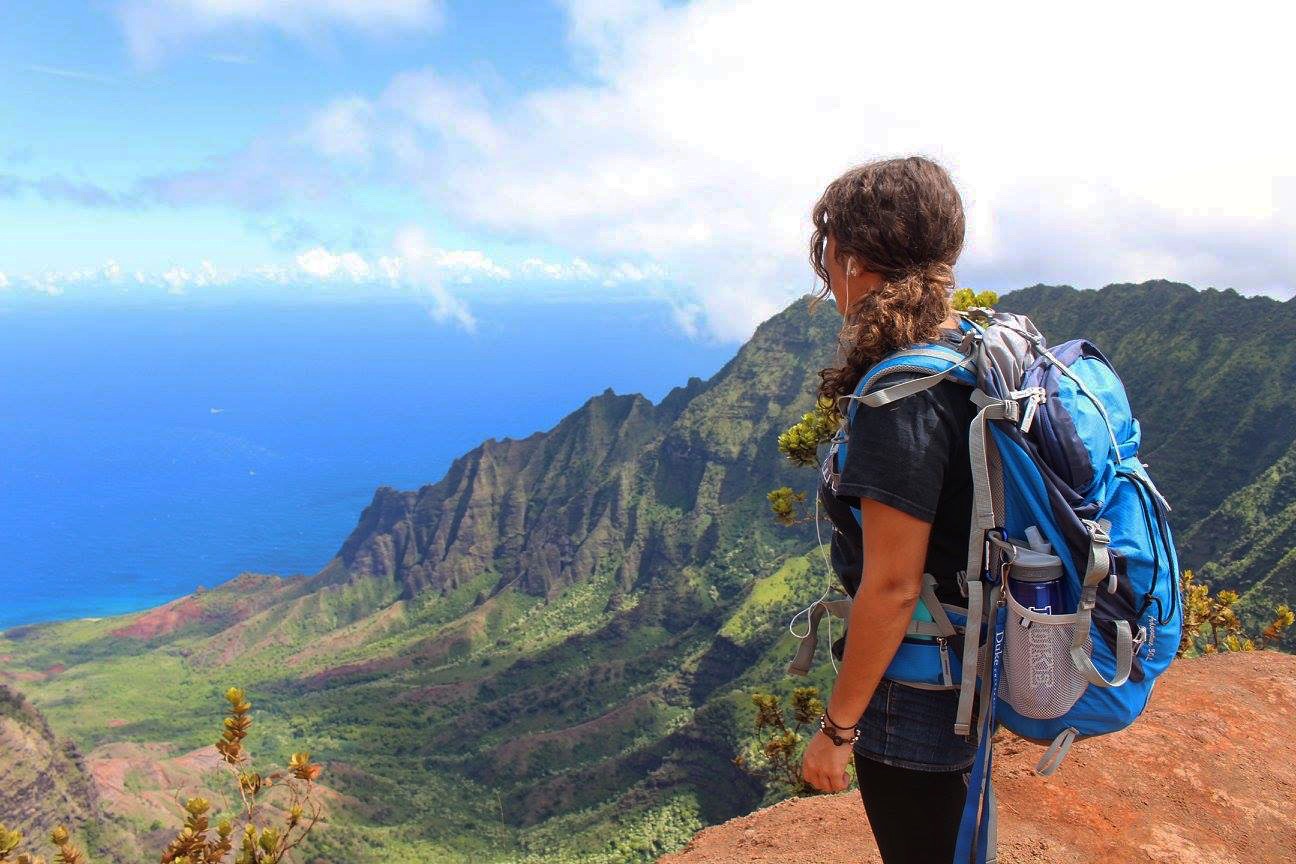
Putting It All Together: Independent Research and Senior Thesis
Back at Duke the fall of my junior year, I was selected to be in the Rachel Carson Scholars Program, a competitive program offering direct research experience, faculty mentorship, and professional development in marine science and conservation. As a Scholar, I was expected to carry out scientific research at DUML as a research independent study with a faculty mentor, and later write up the project as a senior honors thesis.
As I considered a research topic, I thought back to the conversations I had abroad. Throughout my experiences, I listened with curiosity to terms, trends, and themes that emerged when people would discuss with me their relationship with the environment. I would drink in every word, feeling satiated with each conversation. More specifically, I inquired further about their constructed interpretation of the term “conservation” in hopes of understanding how communities within different environmental settings interpret conservation and also how they organize to implement it. I found this topic to be fascinating to discuss because the answers varied by location. The number of ways in which community members took action in favor of conservation seemed endless, as I dove further and further into the depths of each one.
I wanted to compile all of my community-based experiences together, but deepen my understanding of one. To do so, I decided I would conduct my independent research project on the most memorable conversation I’d had, which was in Mexico the year prior. The spring of my junior year, I returned to Mexico under the faculty mentorship of Professor Xavier Basurto-Guillermo and began my research into understanding the development and sustainability of community-based conservation initiatives in fishing communities within developing countries.

The summer following my junior year, a fortuitous opportunity was presented to me to improve my Spanish and continue connecting with local communities. I was a part of the inaugural cohort of Duke in Chile, a program that focuses on the intersection of language and entrepreneurship in shaping culture. I remember the first day I went to a local social entrepreneur’s shop, hidden in the crevices of the building next to our hotel. I talked with her for almost two hours about what she believes to be her purpose as a social entrepreneur and why she decided to become one. It was enriching to listen to her perspective and to feel a sense of comfort in her patience with my broken Spanish. We found common values and interests that we share; I only regret the time constraints on our discussion because there were so many unanswered questions I still had.
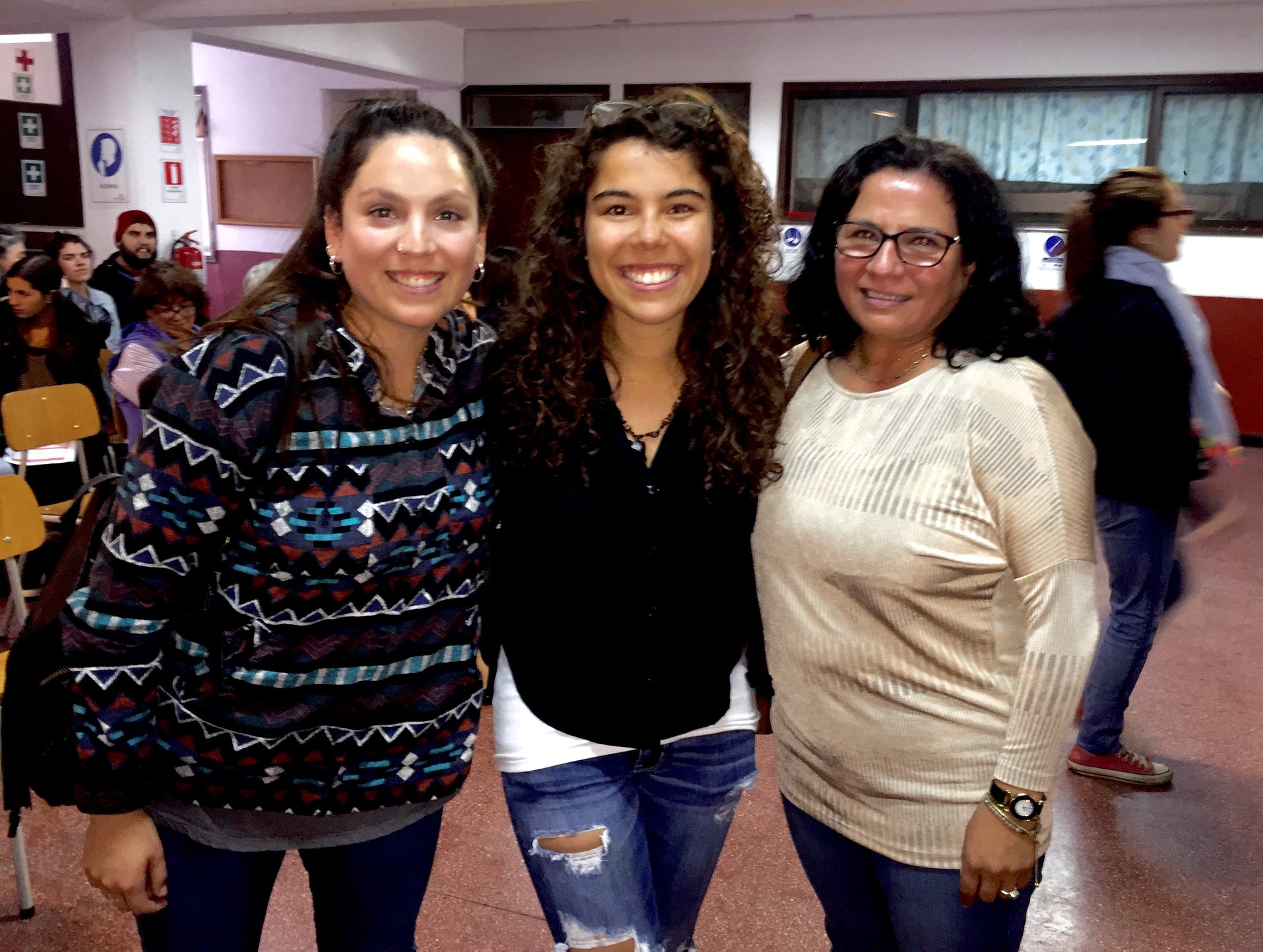
Now, as I write this reflection in my final semester, I am producing my honors thesis for Graduation with Distinction within my degree program. Developing my thesis was difficult at the beginning because I was challenged in grasping the social complexity of communities and interpreting their experiential knowledge when I was an outsider. However, despite the obstacles that I faced, I have never been happier in what I am studying and continuing to learn.
There was one commonality across the travel programs and courses I was drawn to, and it was that the faculty leading these programs stressed student responsibility to immerse themselves in the community outside the classroom. As I reminisce on my experiences, I completely agree. My experiences centered around the cultivation of a global perspective. What excited me about traveling was having the ability to engage with communities at the global level and listening to their stories.
Studying away is the experience that you make it to be, not your professors, not Duke, not your family, not your community—you. I believe that many students lose sight of this once they enter the Duke bubble. It can be challenging to break down the boundaries of the Duke difference and see past the stone walls of this campus into the surrounding communities, not just here in Durham, but worldwide. It is our responsibility to actively immerse ourselves in pursuing opportunities on our own. However, studying away or traveling is not about coming back “changed”. It is not about traveling for pleasure and leisure, nor is it about being a tourist. It is about being an active learner, a sponge to all that you experience. In doing so, we take ownership of our experience and allow ourselves to reflect on similarities and differences that exist and how to be open-minded and empathetic about them. According to Mark Twain, “Travel is fatal to prejudice, bigotry, and narrow-mindedness.” Empathy is a huge lesson for students to learn here at Duke, but how to incorporate it in a way that it penetrates the minds and behaviors of students may be Duke’s biggest challenge.
Cheers to a Future of New Memories: Beyond Duke
As the saying goes: "El mundo es un libro y aquellos que no viajan sólo leen una página". It says: “The world is a book and those that do not travel only read one page”. I cannot emphasize enough the truth in this quote and the value that immersion has had in shaping my mindset and approach to life inside and outside the classroom, as well as my pursuit of true happiness. There is nothing like exiting your comfort zone in another country, or even in another city or state, and opening up your mind and heart to people, places, and things that exist within that culture. I was fortunate enough to be able to participate in educational opportunities off-campus, which would not have been possible without the generosity of Financial Aid and my scholarship donors. Although this has caused me to shape my academic trajectory different in comparison to most of my peers, I am eternally thankful for the wisdom, personal development, and fond memories that each trip imparted upon me. Even more so, I am thankful for each trip’s contribution in leading me toward my passion, on which I am writing my honors thesis.

In life, it is common knowledge that we need failure to learn, experience to grow, hope to persevere, and empathy to reflect. We need to command our present in order to be happy in our future. How we learn these lessons changes based on each person’s individual experience. The real challenge that I have now is embodying these lessons and embracing my reflection. I must embrace my failure and how it brought me to my passion for the interrelationship of the environment and the global community. I look forward to the future, even though it may not involve me still being a Duke student, because my commitment to the oceans remains unwavering and my curiosity in understanding communities is reaching new heights.
I aim to maintain this level of commitment and curiosity as I enter the career field of ocean and coastal environmental policy and management. I wish to remain steadfast in my core values as I make decisions. Duke helped me to define and develop my core values including but not limited to humility, empathy, respect, integrity, adaptability, altruism, and passion. I love how passionate I am when I invest myself into ideas, projects, movements, and people. It illuminates in everything I set out to do, and I would hate for it to ever dim. With this in mind, I hope to not compromise my values nor my character as I progress in my next steps, because not only would I be doing a disservice to Duke and all that it has taught me, but I would be doing a disservice to myself.
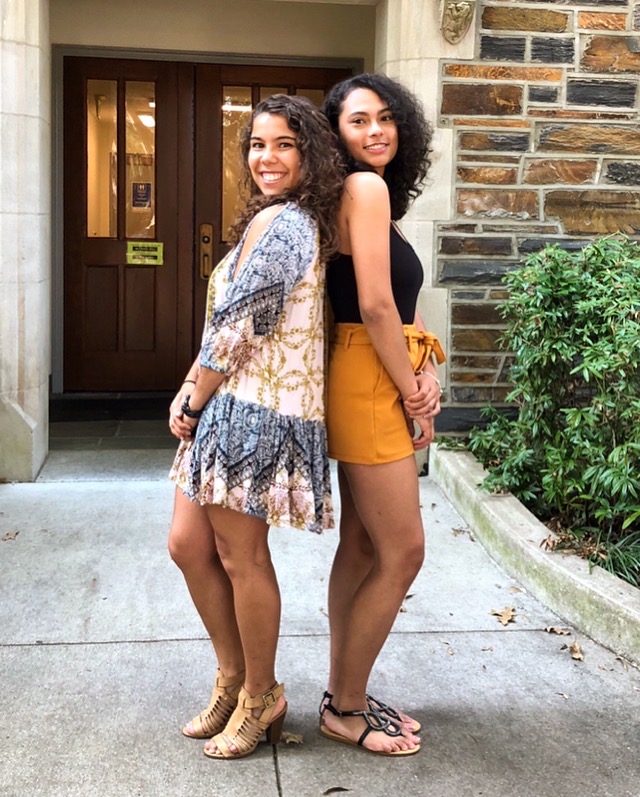
I wrote in my application four years ago that I wanted to make memories if I came to Duke, important and treasurable memories that would last a lifetime. Memories that would be comparable to those I possess from my childhood when I would bond with my grandfather over the night sky and the stars that twinkle as if winking back at us. At Duke, I have made these memories. Although, these memories are not the ones you may expect to be stereotypical of what a Duke student does. I did not run for president of a large student-body organization, I was not a co-founder of a successful non-profit, nor did I break world records, but I made memories. Many are good, many are bad, but such is a comparison to the lives in which we live. We will always have moments, good and bad, where we are overcome with happiness, anxiety, sadness, joy, or peace. They cultivate who we are, providing us the opportunities to learn and grow—the opportunities to find direction. They have made me the strong woman that I am; the fighter that I will continue to be. If I allow fear to overtake me, then I will not be able put together my puzzle of memories, one piece at a time.
Programs Featured:
Duke in Australia
